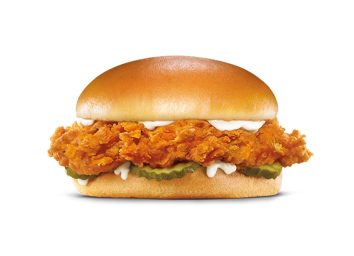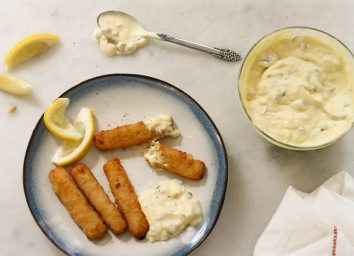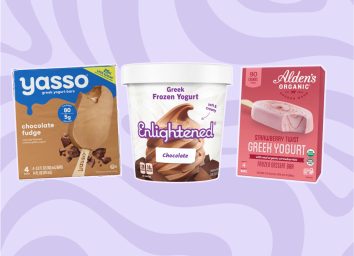The Best & Worst Store-Bought Mustards—Ranked
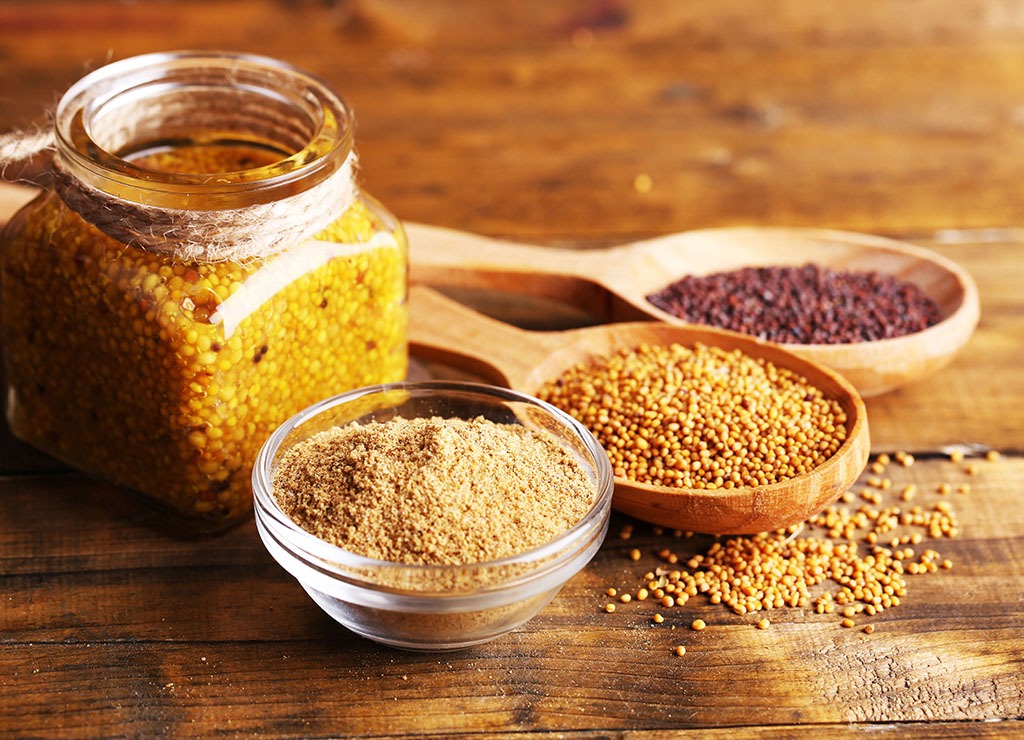
Name a better duo than ketchup and mustard—we'll wait. There really isn't one, is there? Even though the two are quite the dynamic pair, mustard is one of those standalone condiments that many just can't live without. Whether you spread it on a ham, bologna, or salami sandwich, squirt it all over a hot dog, or include it in a savory salad dressing, there's no denying that mustard is a staple in many refrigerators. But mustard comes in all different types, such as spicy brown and honey to name a few, so which option is the best mustard?
Well, all the varying kinds out there yield plenty of pros and cons. Mustard is oftentimes a great condiment choice because it's "typically made without the sugar, fat, or preservatives," says Amy Tao, MS, of Based Wellness. She points out that it's best to keep in mind that eating mustard in small amounts is key to enjoying the spread, though.
"Always check the sodium content, as the serving size is typically a teaspoon," Tao says. "If you are eating several servings of a mustard that is high in sodium, you could be consuming quite a bit of sodium."
To make your mustard-shopping experience smarter and more effective (there are tons of options, after all!), we had Tao help us rank some of the most notable store-bought mustard brands from best to worst. To do so, she looked closely at the quality of the ingredients and certain aspects of the nutritional value, which, in turn, helped us determine which brands are ultimately better for your health.
Here are the 10 best and worst store-bought mustards.
The best store-bought mustards, ranked from good to absolute best
Plochman's Kosciusko Mustard
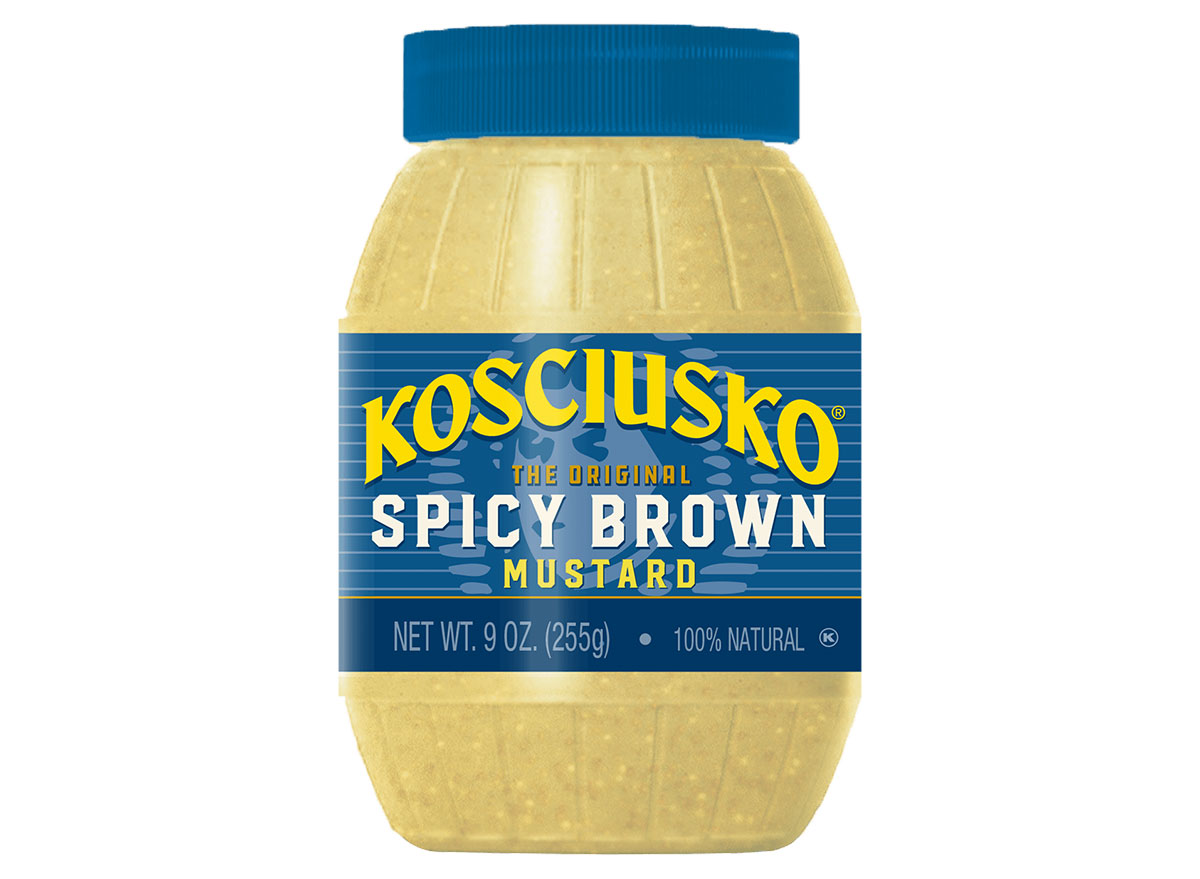
Ingredients: White Distilled Vinegar, #1 Grade Mustard Seed, Water, Salt, Spices, Paprika.
"Straight-forward, simple ingredients with an average sodium content is what lands Plochman's [in] the middle of the list," Tao says.
French's Yellow Mustard
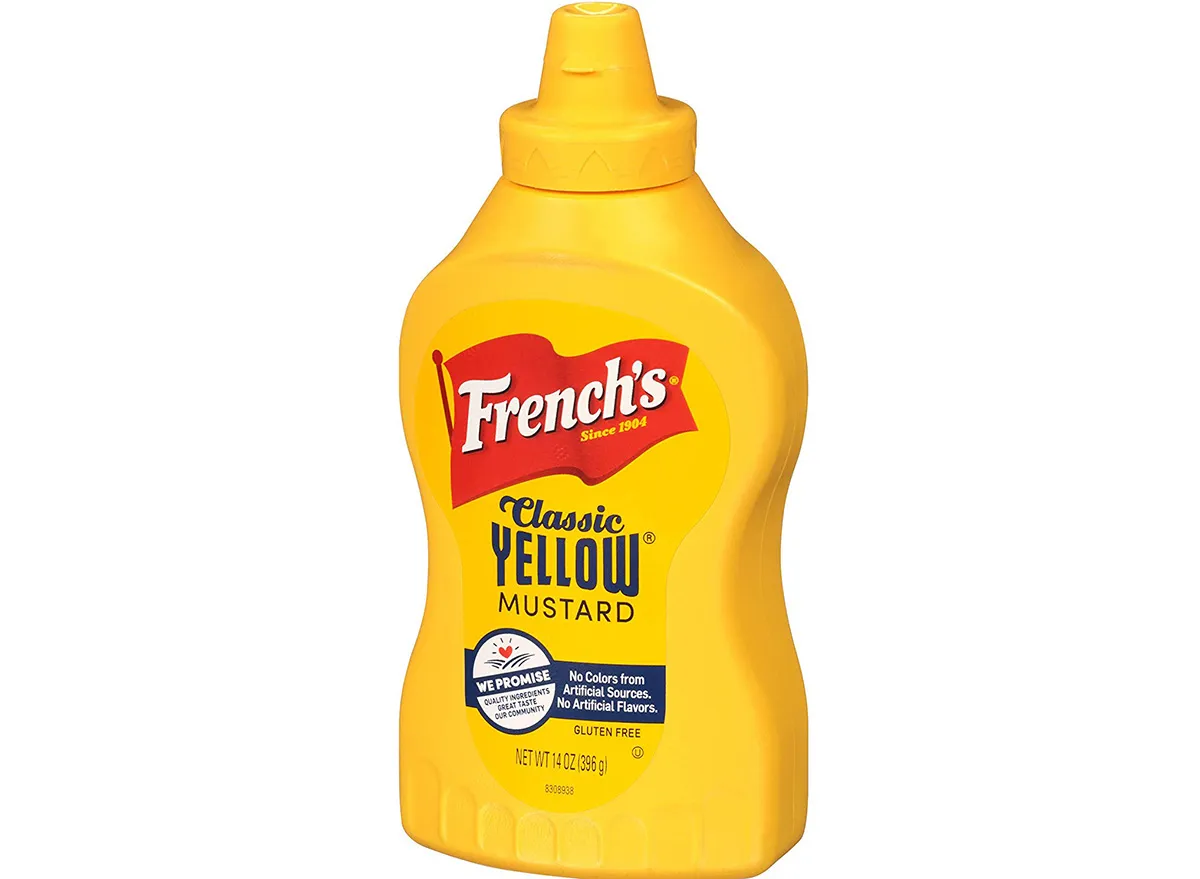
Ingredients: Distilled Vinegar, Water, #1 Grade Mustard Seed, Salt, Turmeric, Paprika, Spice, Natural Flavors and Garlic Powder.
Surprisingly, French's—a common household brand—is sans preservatives.
"French's, the best-selling mustard brand, has managed to keep their mustard free from some unnecessary ingredients like colorings or preservatives," Tao says. "They've also managed to keep the sodium content relatively low."
Annie's Organic Dijon Mustard
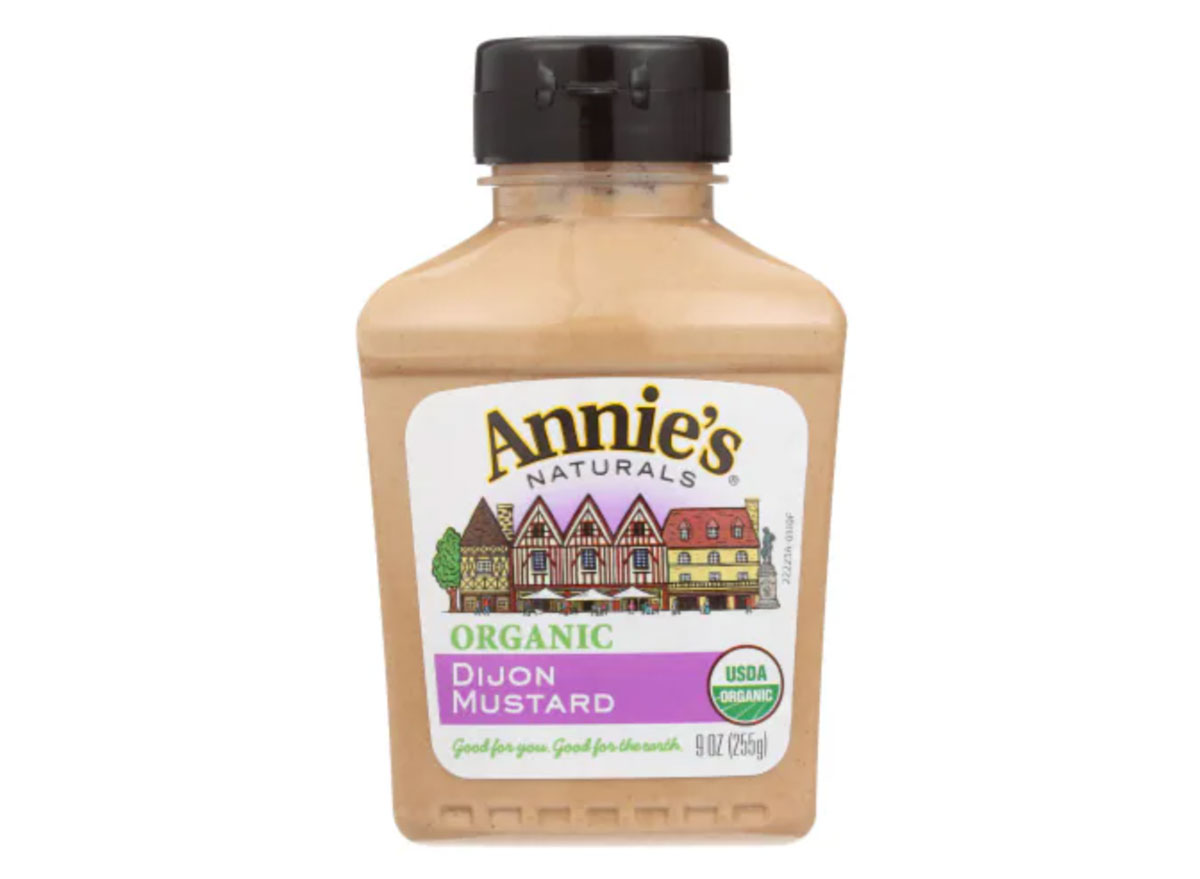
Ingredients: Organic Distilled White Vinegar, Water, Organic Mustard Seed, Sea Salt, Organic Clove
Even though this brand is organic, there's something about the ingredient list that knocked it down to third place, and that's the salt. "The simple, organic ingredients that are all listed in this one make it a top contender," Tao says, before pointing out that "the sodium content is more than double the Gulden's brand," which is a drawback.
Nathan's Deli Style Mustard
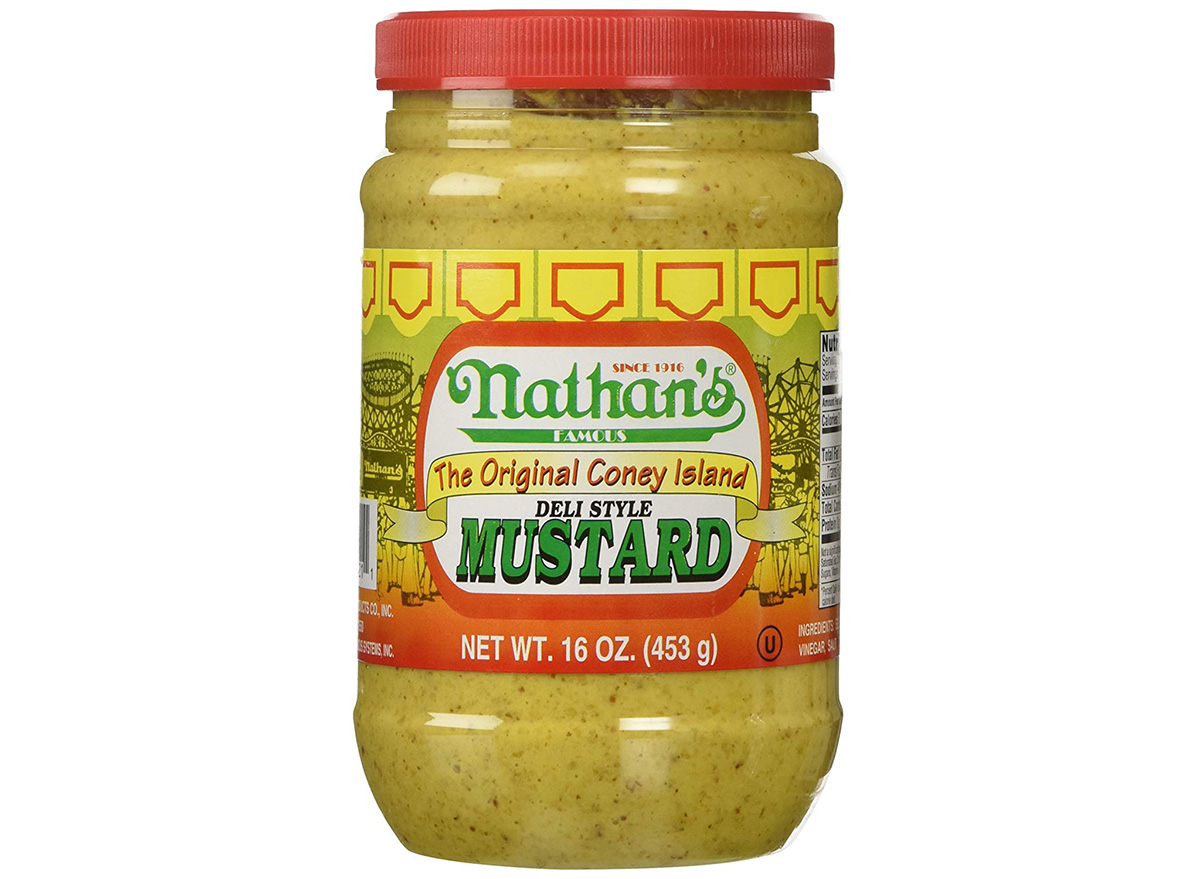
Ingredients: Select Mustard Seeds, Vinegar, Salt, Turmeric and Spices
It turns out Nathan's Deli Style Mustard is an ideal companion for your hot dog. "This mustard is a great choice because it contains the least amount of sodium compared to the other options on the list!" Tao says.
Gulden's Spicy Brown Mustard
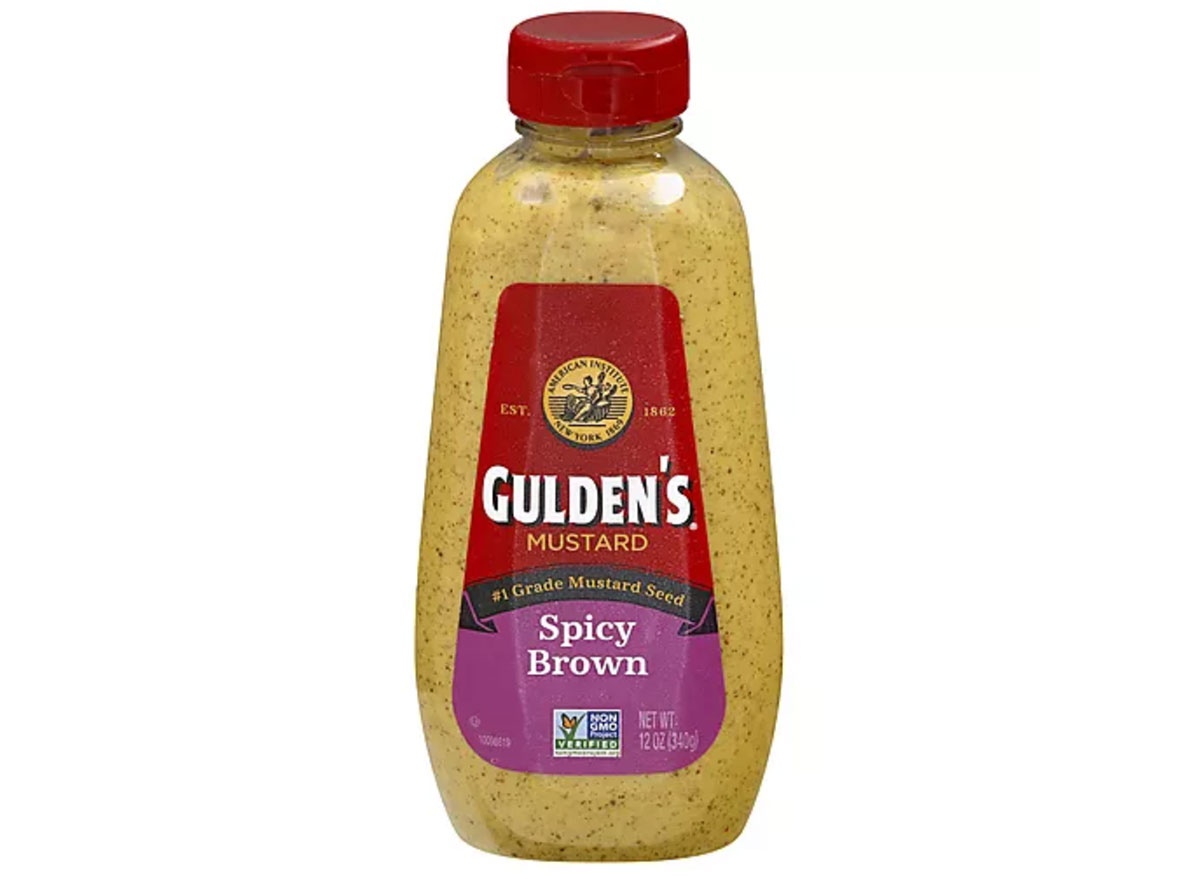
Ingredients: Organic Vinegar, Water, Mustard Seed, Salt, Spices, Turmeric
The crowd-favorite Gulden's proves it's an old reliable favorite for a reason. "Since the main ingredient of this mustard is organic and because it has less sodium than many of the other mustards on the list, Gulden's mustard comes in first place," Tao says.
The worst store-bought mustards, ranked from bad to absolute worst
Heinz Yellow Mustard
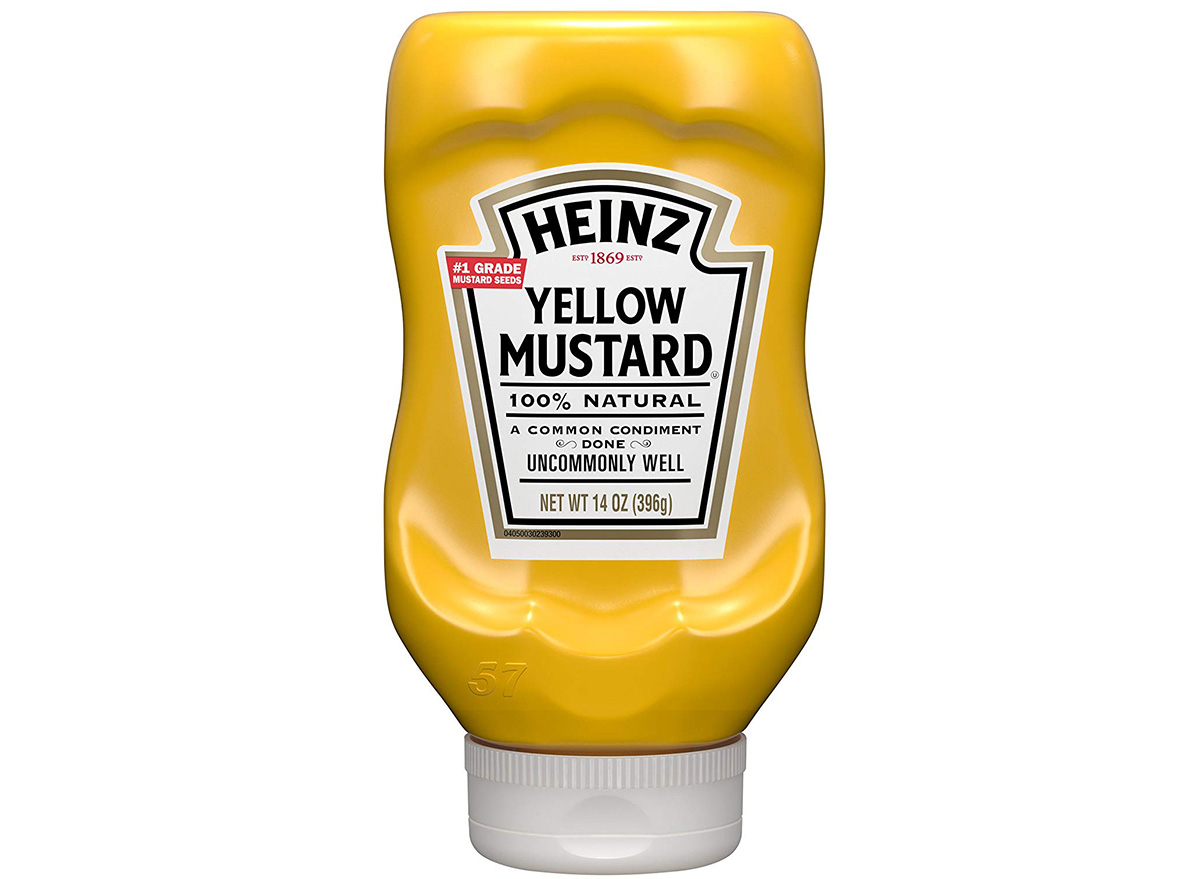
Ingredients: Distilled White Vinegar, Mustard Seed, Water, Salt, Turmeric, Natural Flavor, Spices.
This specific mustard is suggested due to its one special ingredient, according to Tao.
"With ingredients and sodium content similar to a few others on the list, Heinz earns points for containing turmeric, a root that is oftentimes praised in herbal medicine for its anti-inflammatory properties," she said. "Although we do not know exactly how much turmeric is in this mustard and if it would be enough to have any health benefits."
Sabrett Spicy Brown Mustard
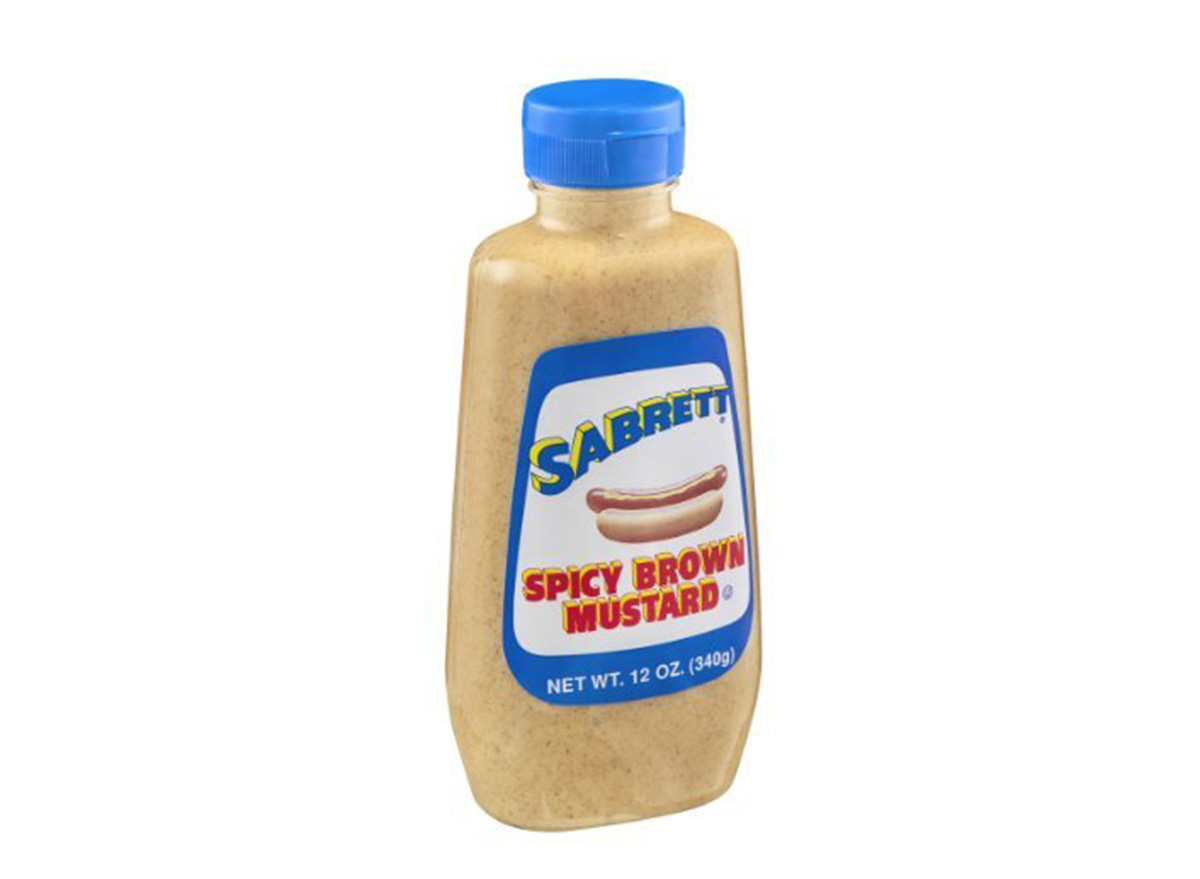
Ingredients: Distilled Vinegar and Water, No. 1 Grade Mustard Seed, Salt, Turmeric, Spices and Flavoring
Another potential hot dog companion, "Sabrett is nearly identical ingredient-wise to Heinz Yellow Mustard, but it contains 5 more mg of sodium per serving which causes it to rank lower," Tao says. "It's also worth mentioning is that both mustards contain unspecified spices and flavoring which could pose an issue for people who have stringent food restrictions," she adds.
Grey Poupon Dijon Mustard
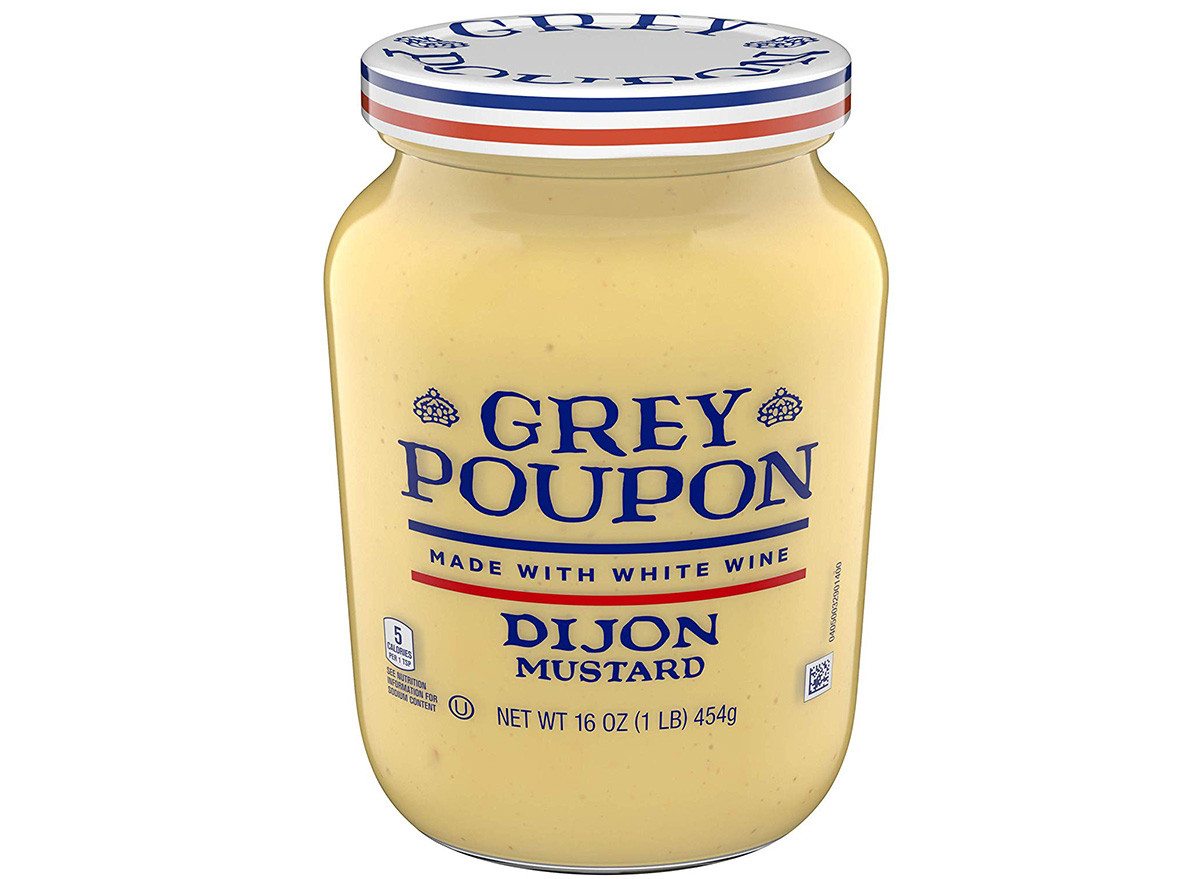
Ingredients: Water, Vinegar, Mustard Seed, Salt, White Wine, Fruit Pectin, Citric Acid, Tartaric Acid, Sugar, Spice.
There are a few reasons why Grey Poupon, which is often an ingredient in balsamic vinaigrette, has fallen so low on the list.
"While in amounts that are not enough to make an impact on the label, Grey Poupon does contain sugar," Tao says. "Additionally, it contains preservatives citric acid and tartaric acid. Both of these preservatives can occur naturally, but they can also be lab-made. Lastly, Grey Poupon has a lot of sodium compared to all of the other brands."
Gulden's Honey Mustard
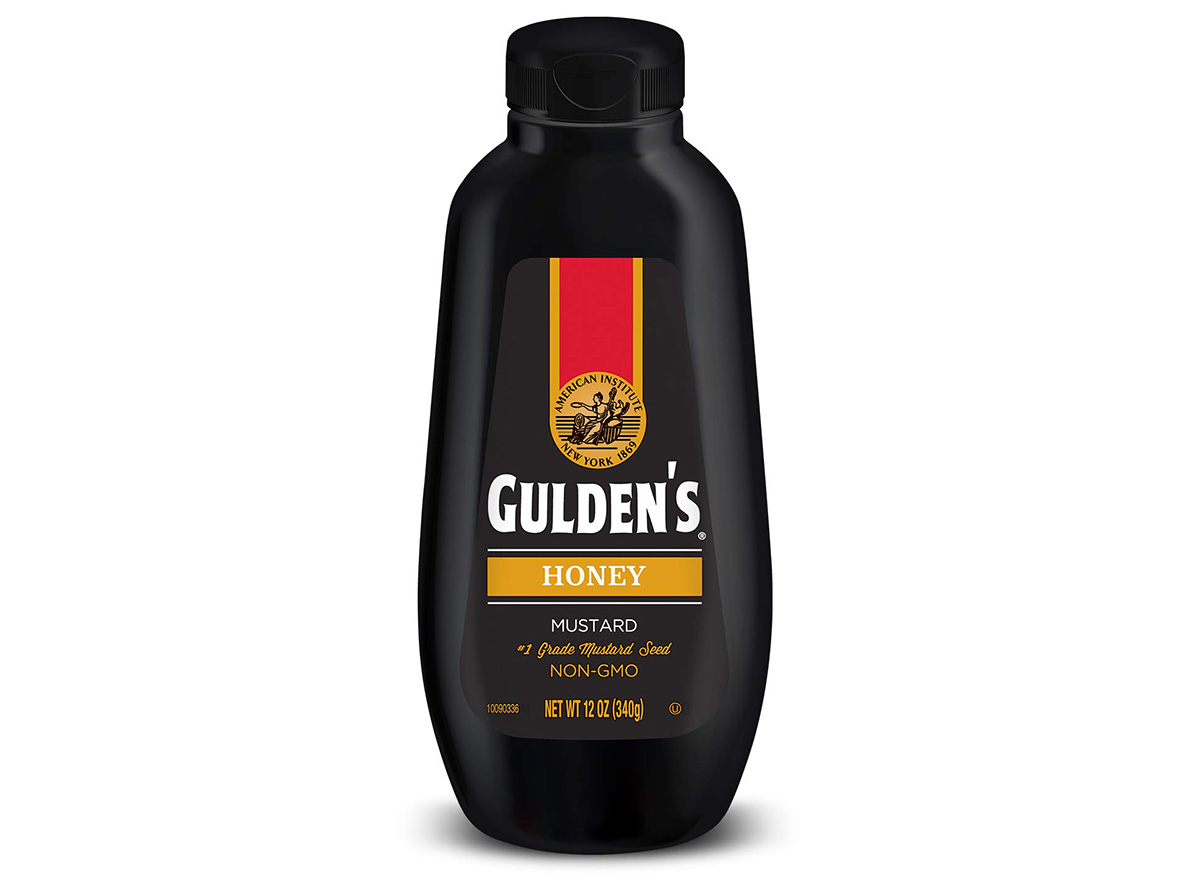
Ingredients: Water, Cane Sugar, Organic Vinegar, Mustard Seed, Organic Honey, Salt, Turmeric, Garlic Powder
The downside of this sweet condiment, typically used for dipping, is, of course, the sugar.
"While 2 grams of sugar per serving does not sound like a lot, there are four grams of sugar in one teaspoon of sugar, which means in this one teaspoon serving size of mustard there is half a teaspoon of sugar," Tao says.
Keeping that in mind, she has a suggestion.
"Since honey mustard is inherently a sweet mustard, it may be best to forego honey mustard altogether and choose another variety that does not contain as much sugar," Tao said. "If you are still set on having honey mustard, consider making honey mustard at home where you can control the amount and type of sweetener used."
Inglehoffer Original Stone Ground Mustard
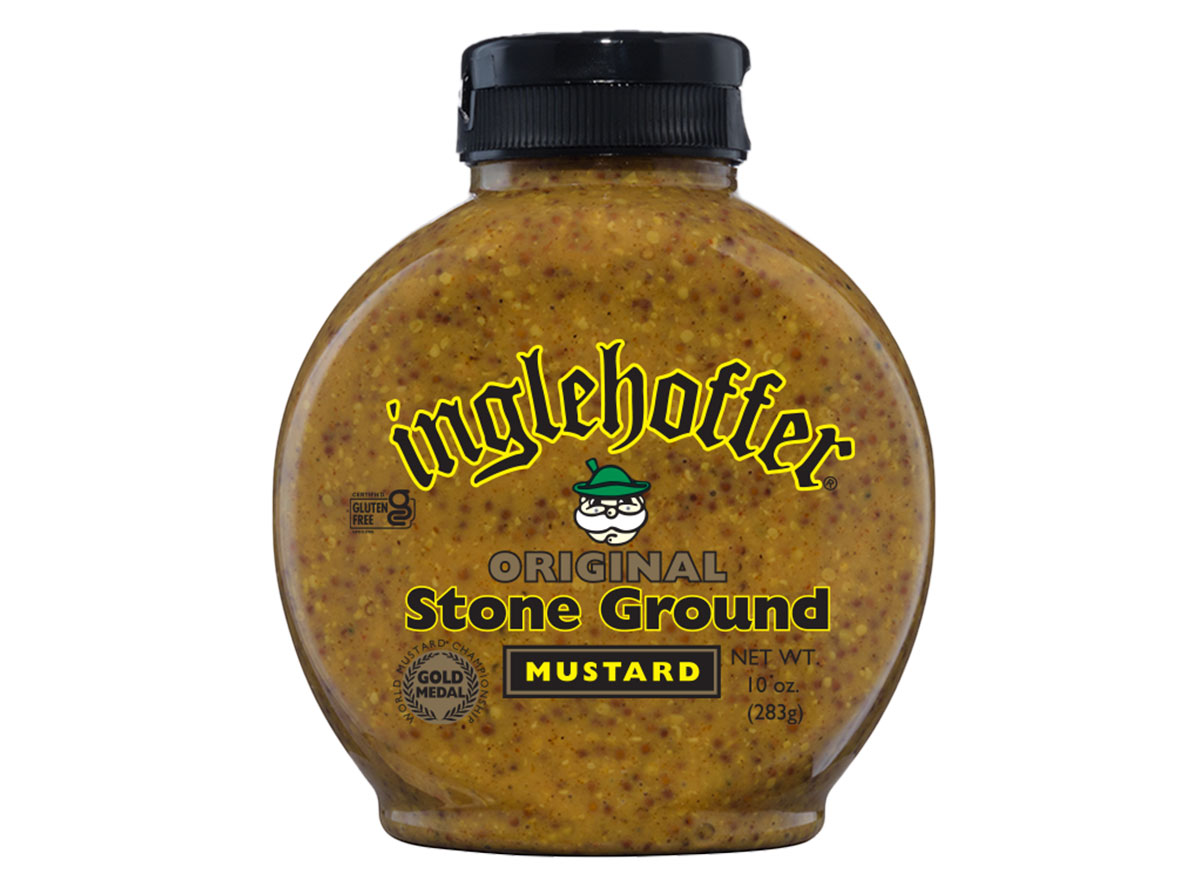
Ingredients: Water, Vinegars (White Distilled, Red Wine and White Wine), Mustard Seed, Sugar, Salt, White Wine, Garlic, Spices, Xanthan Gum, Turmeric, Natural Flavors, Annatto.
Although the term "stone-ground" suggests that it may be natural, Tao ranked this brand last.
"I would put this mustard at the bottom of the list because of the unnecessary color additive (annatto), the use of sugar, and the use of artificial flavors," she says. Skip lathering this one all over your hot dog or hamburger!
